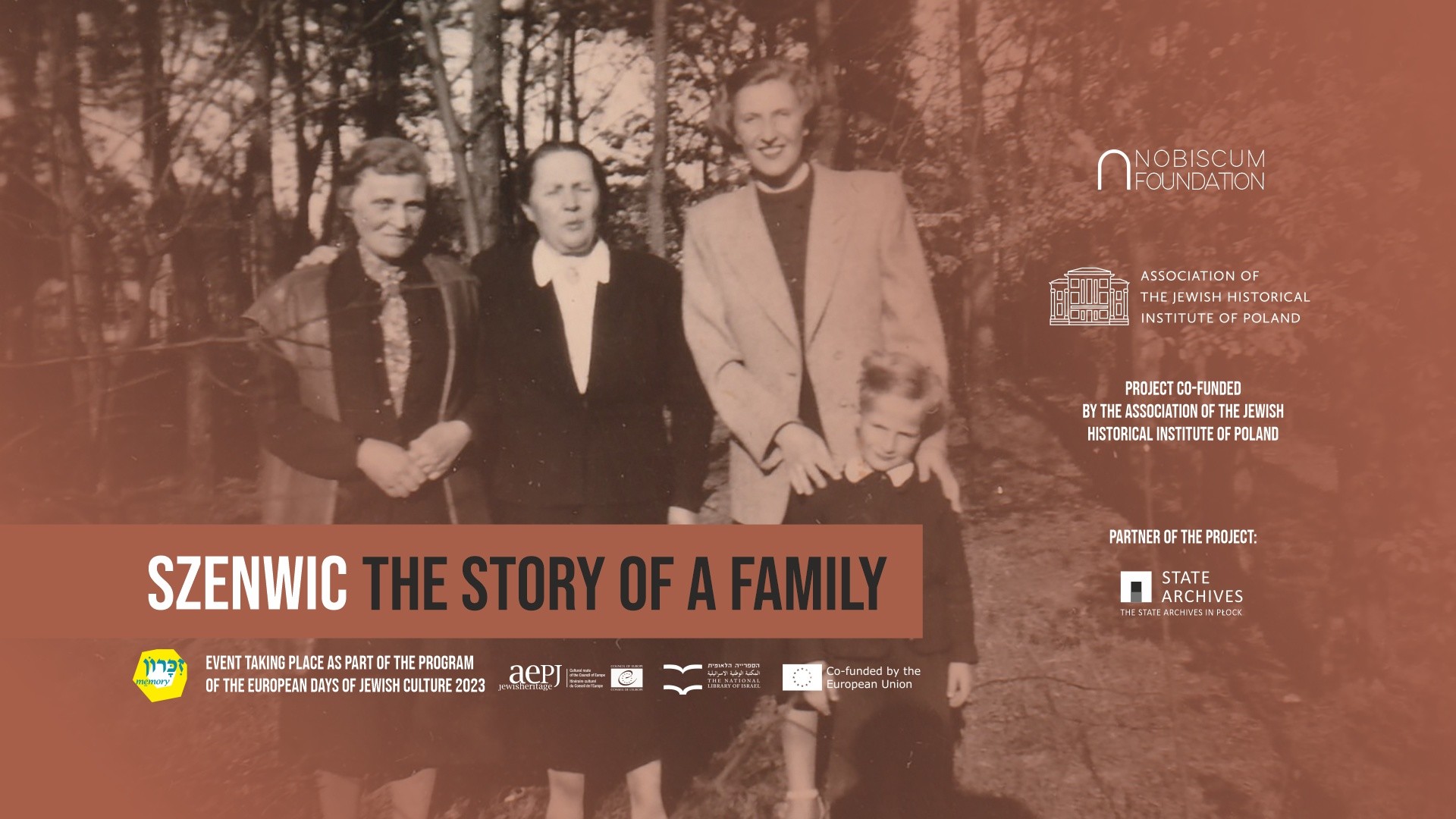The history of the Szenwic family starts at the beginning of the 19th century with the arrival to Płock of Jakub Lewin Moszkowicz, who in 1809 married Jacheta, daughter of Mojżesz Iczkowicz and Mindla née Henoch. Jakub Lewin Moszkowicz, who started using the name Szenwic as early as 1812, is remembered by the citizens of Płock not only as an enterpreneur and merchant, but also as a man keenly interested in the affairs of the Jewish community in Płock. Elected a member of the synagogue supervisory board several times, he was also a member of the Bykier Holop funeral fraternity and the Committee of the Jewish Hospital of the Płock District, whose task was to set up a hospital for Jewish patients in Płock.
His children also made a permanent mark in the history of the town, especially his son Markus Szenwic, who after his father’s death, together with his brothers Natan and Chaskiel, donated nearly 2,500 rubles to the Jewish community for the construction of a new hospital for members of the Jewish community of Płock. The hospital, which was named after Izaak Fogel, was opened in December 1872, and in 1876 the Welfare Board of the Płock Governorate appointed Markus Szenwic as its curator. The medical facility, located at Misjonarska Street, functioned until 1941. Markus Szenwic was also a member of the committee that launched an inexpensive canteen for the poor Jewish people of Płock and a member of the Charity Society in Płock.
The history of the Szenwic family is connected not only with Płock, but also with Łódź, Włocławek, Warsaw and Positano in Italy, where Feliks Szenwic – Romanist and lawyer, professor of the history of Roman law at the Free Polish University in Warsaw, had his summer residence, He ran a law office at 40 Nowogrodzka Street, at one of the most prestigious addresses in pre-war Warsaw.
The Szenwic family was associated with figures important for the world of science, such as Juliusz Zweibaum, husband of Eugenia Szenwic, a histologist and biologist who organized a secret medical school for young people during World War II and participated in scientific research on the effects of starvation in the Warsaw Ghetto.
Finally, the history of the Szenwic family is the story of extraordinary, brave and inspiring women, such as Róża Szenwic, who during the Polish-Bolshevik war worked in the Society for the Protection of Soldiers and the sewing room of the Red Cross, Regina Ryfka Szewic, who used the name of Barbara Olszewska, who took part in the Warsaw Uprising, in the Home Army group “Chrobry II”, Fryda Szenwic – a painter known in pre-war Płock, who presented her works, among others at the exhibition “The Art of Płock” organized in 1932, or Iwona Klara Szenwic – philologist in the field of Slavic, English and Roman studies, professor at York University in Toronto, member of many scientific societies and organizations, e.g. Polish Scientific Society Abroad and the Polish Scientific Institute in America.
The presented exhibition would not be possible without the cooperation and involvement of family members. An invaluable role was played by Mrs. Zuzanna Witwicka and Mr. Dany Yazbeck, who made available to us many valuable family memorabilia, photographs and documents. We also direct our special thanks to Mrs. Zofia Perzyńska, Mrs. Jenny Grabowski and Mr. Jakub Pitera. The exhibition also presents documents from the collections of the State Archives in Płock (a partner of this exhibition), the State Archives in Łódź, the State Archives in Włocławek and the archives of the University of Warsaw.
The exhibition was supported by funding received from the Association of the Jewish Historical Institute of Poland.

















